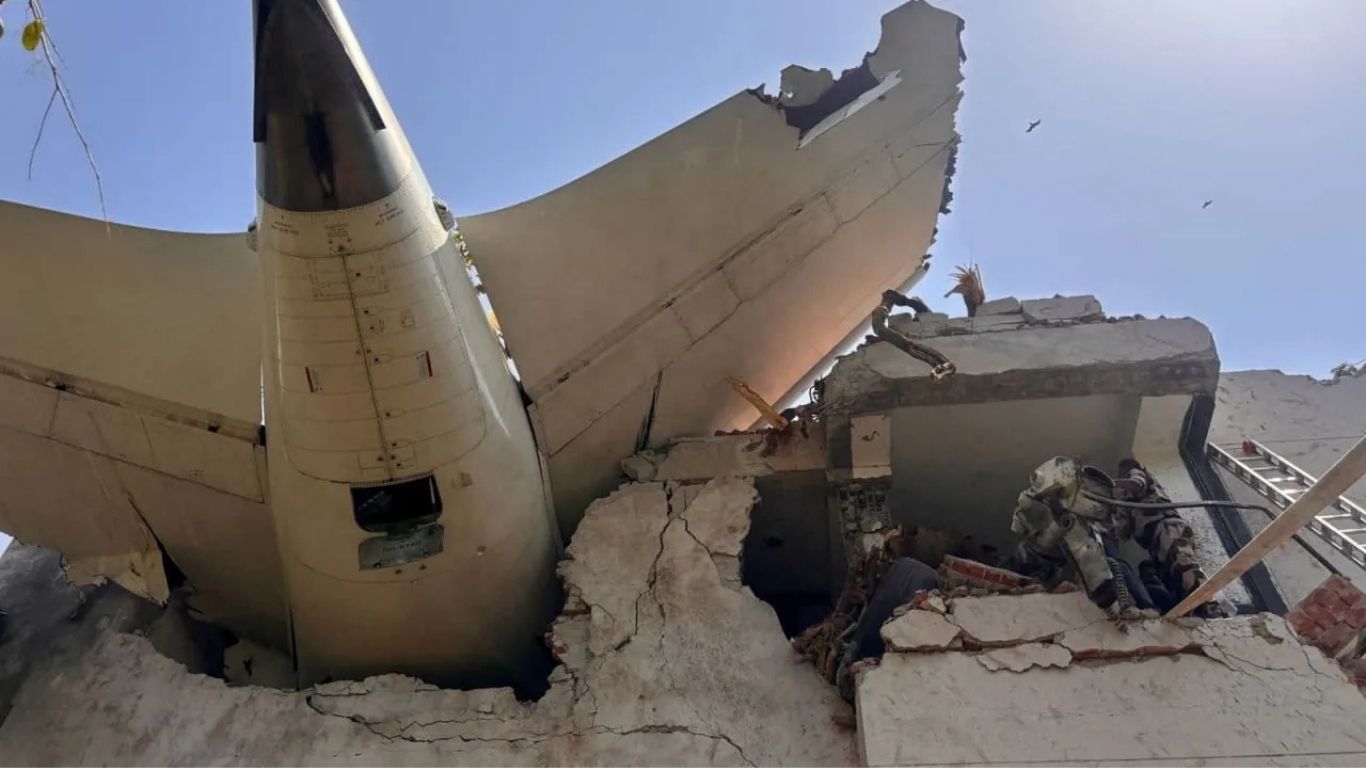The deep sea—the part of the ocean below 200 meters—covers nearly 66% of Earth’s surface but is one of humanity’s greatest unknowns. A report published in Science Advances on May 7, 2025, contained within its pages a shocking revelation: 99.999% of the seafloor in the deep sea has yet to be explored, while 0.001%, an area only about as large as Rhode Island, has been visually seen by human eyes. The revelations based on an analysis of 44,000 dives in the deep sea since 1958 are those of an immense frontier that is within reach yet fantastically out of hand. With humanity facing rising issues of climate change, resource scarcity, and geopolitical competition, the deep sea is a crucial field in which science and diplomacy must overlap more and more. Herein is the story of why the deep sea is crucially important, why it is difficult to explore, and why global cooperation is completely necessary in order to open it up in a sustainable way.
The Global Significance of the Deep Sea
It is far more than an abyssal black hole within the depths of the ocean—but it is a source of ecological and climatic processes on Earth. Its ecosystems thrive in extreme pressure and darkness and are nourished by biodiversity capable of rivalling even the most productive terrestrial ecosystems. The microorganisms within it play a vital function in global processes of carbon and sequester massive quantities of CO2 that would otherwise get involved in intensifying climate change. The deep sea may represent a “nature-based solution” for solving climate problems, a 2023 Frontiers in Marine Science article states, but its processes remain unknown because it has been poorly studied.
Economically, the deep sea is a treasure chest waiting to happen. Its seafloors are awash in minerals of manganese nodules, cobalt, and rare earths—all materials crucial for powering the green energy revolution from offshore wind farms to electric vehicle batteries. These are mostly in international waters outside anyone’s jurisdiction and have spurred an impenetrable knot of diplomatic crises. The dual roles of the deep sea as an environmental regulator and storage of resources make it a major point of contention in global debates over sustainability, fairness, and governance.
State of Exploration: Gaps and Biases
Despite its importance, all we know about the deep ocean is scandalously incomplete. Science Advances research by Dr. Katy Croff Bell of the Ocean Discovery League combed through decades’ worth of exploratory data and disclosed sweeping imbalances. Over 65% of visual floor observations have been in 200 nautical miles around the United States, Japan, and New Zealand, yet these nations, as well as France and Germany, have undertaken 97% of all submergence in the deep seas. Hot spots such as the Mariana Trench have been extensively researched but seamounts and abyssal plains remain unvisited in large regions. Dr. Bell reports that “This limited sampling of a vast area becomes a critical issue for both science and policy,” especially since risks such as deep-sea mining hang in the future.
Such biases are not simply an academic matter; they have far-reaching implications. Decisions on extracting or keeping resources based on incomplete data can underrepresent major ecosystems or overrepresent resource potential in certain areas. Prioritizing richer nations for investigation also means excluding large parts of the planet from being able to play a potential role in or benefit from knowledge of the deep seas and thereby issues of representation and fairness.
Challenges of Diplomacy
That its location is mostly beyond national borders is why it is a “global commons,” an international resource governed by international law. The basis for that system is the United Nations Convention on the Law of the Sea (UNCLOS), which declares the deep seabed mankind’s “common heritage.” The International Seabed Authority (ISA) regulates activity in those seas under UNCLOS in a way intended to balance economic growth and environmental protection. That system is under threat.
Deep-sea mining has precipitated an international tug-of-war. Industry advocates argue that it can end Earth’s dependence on land-based mining, which has been known to displace local communities and ecosystems. Environmentalists are concerned about causing irreversible harm to fragile deep-sea ecosystems, while mining-induced sediment plume can have the potential for disrupting sequestering processes of carbon. The regulation system of the ISA is being negotiated and is being hindered by logistics and global setbacks including the COVID-19 pandemic. Without rigorous regulation, mining stands to occur prematurely and escalate tensions between countries resource-starved and those committed to conservation.
There is a complication from climate change. The potential for sequestration in deep seas ensures that they have been considered as part of international climate policy, but its limitations—whether in warming seas or acidification—can counterbalance whatever benefit is achieved. Climate change diplomacy must therefore involve participation by deep-ocean science, an endeavor being slowed by exploratory inaction.
Disparities in Access: A Barrier to Inclusive Policymaking
Exploring the depths of the sea is no lighthearted endeavor. To chart one kilometer of seafloor can run between $2 million and $20 million in funds, including high-end submersibles, sonar equipment, and highly trained staff. These obstacles have created a stark chasm: rich nations push ahead while developing countries and nearshore communities—often most exposed to changes in the sea—are relegated to the sideline. The 2022 Global Deep-Sea Capacity Assessment surveyed 186 countries and showed startling differences in expertise, equipment, and investment levels, proving just how exploring is an activity of privileged classes.
This discrepancy has its origins in the past. The 1872-1876 Challenger voyage was one of the first and innovatively pioneered in modern oceanography but had its framework conditioned by its own era. Even while efforts made by an organization such as that of the National Geographic Society in conjunction with indigenous scientists today try to open-up participation, they fall short in rectifying historical marginalisation of poor countries. Unless nations have an interest in the deep sea and in its resources, however, if the deep sea has any hope of being regulated equally
Technological Hope: Democratizing the Deep
Technology gives a means of progress in these trying times. Breakthroughs from remotely operated vehicles (ROVs) and autonomous underwater vehicles (AUVs) are changing how we explore the depths of the sea while reducing cost and improving range. One of the latest innovations from Harvard’s School of Engineering and Applied Sciences has, for instance, designed a device for capturing and preserving organisms from the deep sea for genetic study for quicker research on their ecological roles. Meanwhile, AI-processing of data is helping researchers sort through the treasures of data retrieved from these excursions.
Organisations like the Ocean Discovery League are trying to get these tools into other countries around the world and develop affordable substitutes for traditional equipment. Technology is only half the solution though. It must go hand-in-hand with policies of knowledge transfer and capacity building—the training sessions, loaned-out equipment, and research sharing that would enable developing nations to join in. These interventions would make deepsea exploration an open club rather than a closed one.
A Call To Action: Science as Diplomacy
The deep sea offers an opportunity for all of mankind to unite for a shared goal, as has been accomplished in space exploration. Its secrets and treasures belong to all nations and are therefore a natural target for international cooperation. The international community must act rapidly in order to take advantage of this possibility:
Broaden Exploration: Enhance missions in under-represented regions, especially in the Global South, in a move toward correcting regional imbalances and formulating an overall vision for the deep sea.
Strengthen Governance: Reposition the ISA by formalizing sustainable methods and including all countries—and particularly long-standing marginalized nations—at the table for decision-making.
Develop Capacity: Fund training and technology transfer in order to develop developing countries’ capacity and foster an inclusive scientific community.
Encourage Partnerships: Enhance collaboration between governments, civil society organizations, and private institutions in sharing resources and expertise. Making research in the deep seas an exercise in diplomacy allows nations to transition from rivalry towards cooperation in stewardship. Not only does it advance science but also fairness and values of sustainability that underpin international peace. #### Conclusion: We Open Deep Sea Together With 99.999% of its seafloor in darkness, risks are even more significant. The deep seas are holding secrets about our planet’s history, its stabilisation in the present and its security in years to come—but it can also become a place for exploitation and despoliation. The uneven pattern of exploration that we have today, one of gaps and inequalities, can deprive us of its future potential for being wisely managed as a frontier. Unity is the way forward. With bridging gaps in knowledge, arms open for technological innovation, and progress through inclusive diplomacy, the global community can ensure that the deep sea is for all mankind, not just a privileged few. As Dr. Bell asks rhetorically, “You can just imagine what’s in the rest of the 99.999%.” The time has come from conceiving to exploring—is to do it, collectively. –




